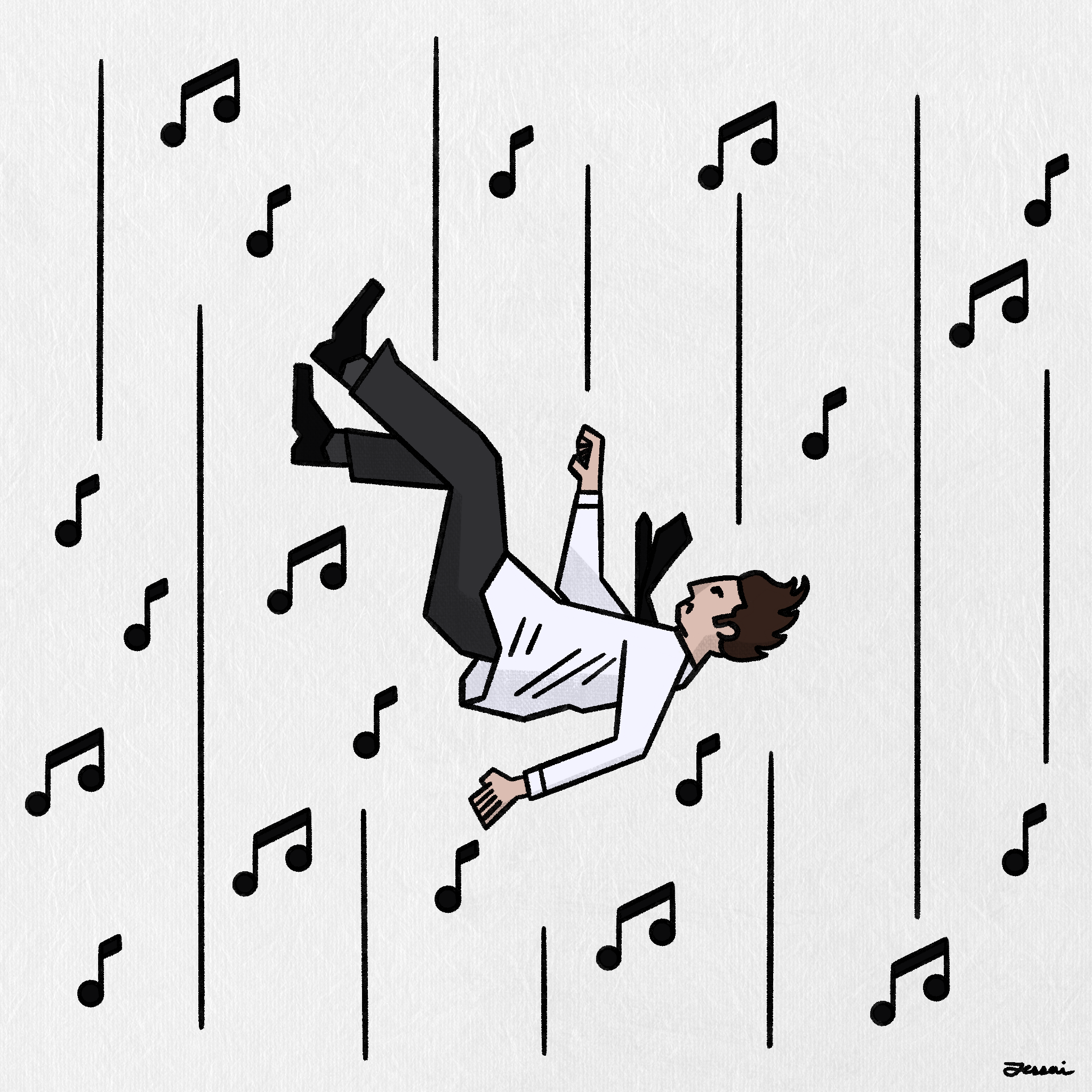
Jessai Flores
Last Thursday, as I headed back to my dorm, I found Poe Doub ’26 hunched over on a bench facing High Street. His face was sullen and perplexed, filled with eagerness and nerves.
“What brings you to this side of town?” I asked, alluding to the fact his Silliman home usually keeps him a few blocks away.
“Rush meal. But they’re running a bit late,” he replied. He continued to sigh and look desperately towards the Old Campus gate.
I was shocked by how serious Poe was about a cappella, but even more surprised to find out that this was a pretty normal thing at Yale.
Before coming to Yale, I thought my understanding of a cappella was above average at worst. I was a devout “Pitch Perfect” stan. For my 11th birthday party, I brought a group of my best friends for a screening of “Pitch Perfect 2.” I had an Anna Kendrick autograph hanging in my bedroom. I viewed the spectacle as a comedy, a camp display of talent and sisterhood. I had no idea that anything even close to a Hollywood plot could happen at my university. But, the life engulfing commitment, the nerves, the competition — are all big screen scenes that I have seen unfold practically out my window.
The a cappella process in so many ways is a microcosm of the Yale experience. In particular, the abundant assessment of personality during the process reflects an image of the Yale social and extracurricular scene. It is long, competitive, tiring, stressful, historic and extreme.
Though the process does include a ten-minute audition to show off singing abilities, it’s ironic that each student only auditions once — or twice, if they’re lucky enough to receive a callback — for each group. The rest of the rush period is spent by rushees attempting to woo the groups with non-singing abilities, highlighting desire for the perfectly well-rounded Yale student. Rushees show off their personality and commitment to the prospective group through attending events like meals and walks around campus — making not only for some perfect harmonies but also a planned campus social scene.
“Some of the groups care more about the vibe even if you’re not that great of a singer. Some of them are like, your vibe can be fine but if you’re a really good singer they’ll still let you in … they definitely want to get a sense of who you are in addition to how you sing,” Poe told me.
I couldn’t help but to think back to my love of “Pitch Perfect” as Poe was describing the judgment practices. In the movie, Brittany Snow and Anna Camp’s characters navigate how to assemble a winning team with no auditionees that fit their set image. With seventeen groups on Yale’s campus, there is naturally a broader realm of inclusivity. But, image perception can be incredibly nerve-racking for first-year students attempting to cultivate community.
On Wednesday, the wait was over. Upwards of 200 students who enrolled in the rush process found out if their hard work paid off. At dinner time that evening, I counted three groups hosting meals with their new, fully formed cohort. The delighted energy and the wide smiles of the new members created an inviting energy and a place I wanted to be.
The promise of new friends and community is thrilling and unique. Perhaps the exhilaration is only brought on by virtue of the intense audition practices.
Regardless of whether they’re a soprano or an alto, most rushees find a group to join and end the process on a high note.
Correction, Sept. 26: A previous version of this article quoted an email from Yale’s Singing Group Council without including the quote’s full context in the email. The quote has since been deleted.







